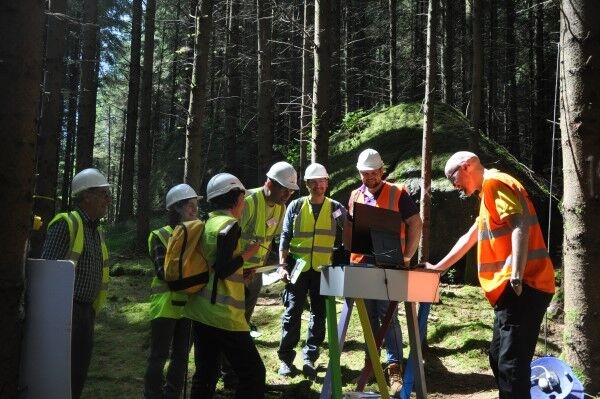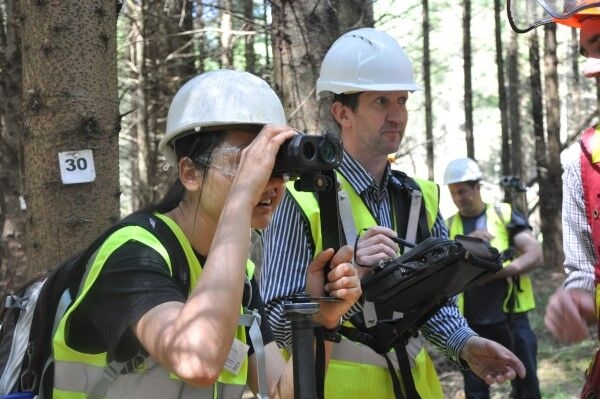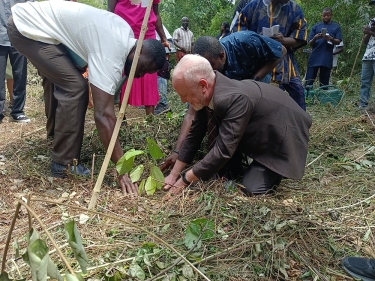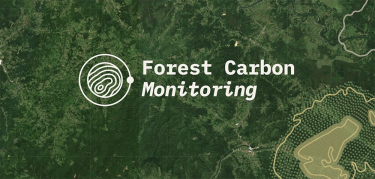International Summer School on Forest Planning and Management: Training in New Tools and Techniques
An international summer school organised by EFIATLANTIC and hosted by Waterford Institute of Technology (WIT) was held in Waterford, Ireland from 19 – 23rd June 2017. The summer school formed part of the EFIATLANTIC Capacity Building Programme.
The focus of the summer school was on providing background information, demonstrations and training in the use of the latest tools and techniques for assisting modern forestry professionals in making informed forestry management decisions at the tree, stand and property level.
The workshop was attended by professional foresters, forest consultants, forest managers, forestry policy makers, and postgraduate-level forestry students with almost 50 participants from 16 countries and tutors from eight countries.
Day 1
The summer school started with an intensive day of background lectures providing a theoretical framework for the tools and techniques being demonstrated, and showing their use and integration into forest management practices.
The summer school official dinner at the end of the day provided a welcome chance to relax. During the dinner the President of The Society of Irish Foresters, Gerry Murphy, presented awards for outstanding early-stage career forest professionals to Zhongqian Cheng from China and Jón Hilmar Kristjánsson from Iceland.
Day 2
Participants were taken for a full-day of field work training in Kilclooney Forest. They were divided into two groups each with four teams. This allowed each team to spend 1½ hours on each of four different activities.
Group 1 focused on tools for planning and forecasting, including national forest inventory assessments using aerial and satellite data, and forest surveying using drones and handheld field measurement tools.
Group 2 focused on stand and tree tools, including tree measurement, terrestrial LiDAR scanning, wood quality assessments, and site classification. We were blessed with perfect weather and the day was wonderfully rounded off with a barbecue at a country pub that included music from a number of participants and tutors.
Days 3 and 4
Back inside for a series of lectures and hands-on laboratory sessions that went into more detail about the individual tools that are available to forest practitioners and planners. The participants were again divided into the same two groups.
Altogether there were 12 different laboratory sessions on topics ranging from stand growth simulators to optimisation techniques and sessions directly related to the field day activities. These later sessions allowed the participants to learn how the field measurements they had collected can be used in conjunction with growth models and decision support systems on economics. Participants learned how to utilise data for risk and site quality assessments, and also how to maximize the potential of data and information from National Forest Inventories and other publically available datasets.
The final morning involved the participants carrying out a Strengths, Weaknesses, Opportunities and Threats (SWOT) analysis of the workshop based on what they had learned. They were divided into four groups in order to carry out this SWOT analysis, assessing how easy the tools and techniques were to understand, how they might be applied in their working life, and what obstacles existed for operational implementation of what they had learned.
The feedback session was very lively and excellent presentations were made to the whole summer school by each group in turn. This final session comprehensively demonstrated how well everyone had integrated, developed friendships and worked together over the week.
All the material and talks from the summer school, and many of the tools, have been made available to the participants.
Summer School information
Field and Laboratory Work Schedule
Photos by Nick Mc Carthy (WIT)




